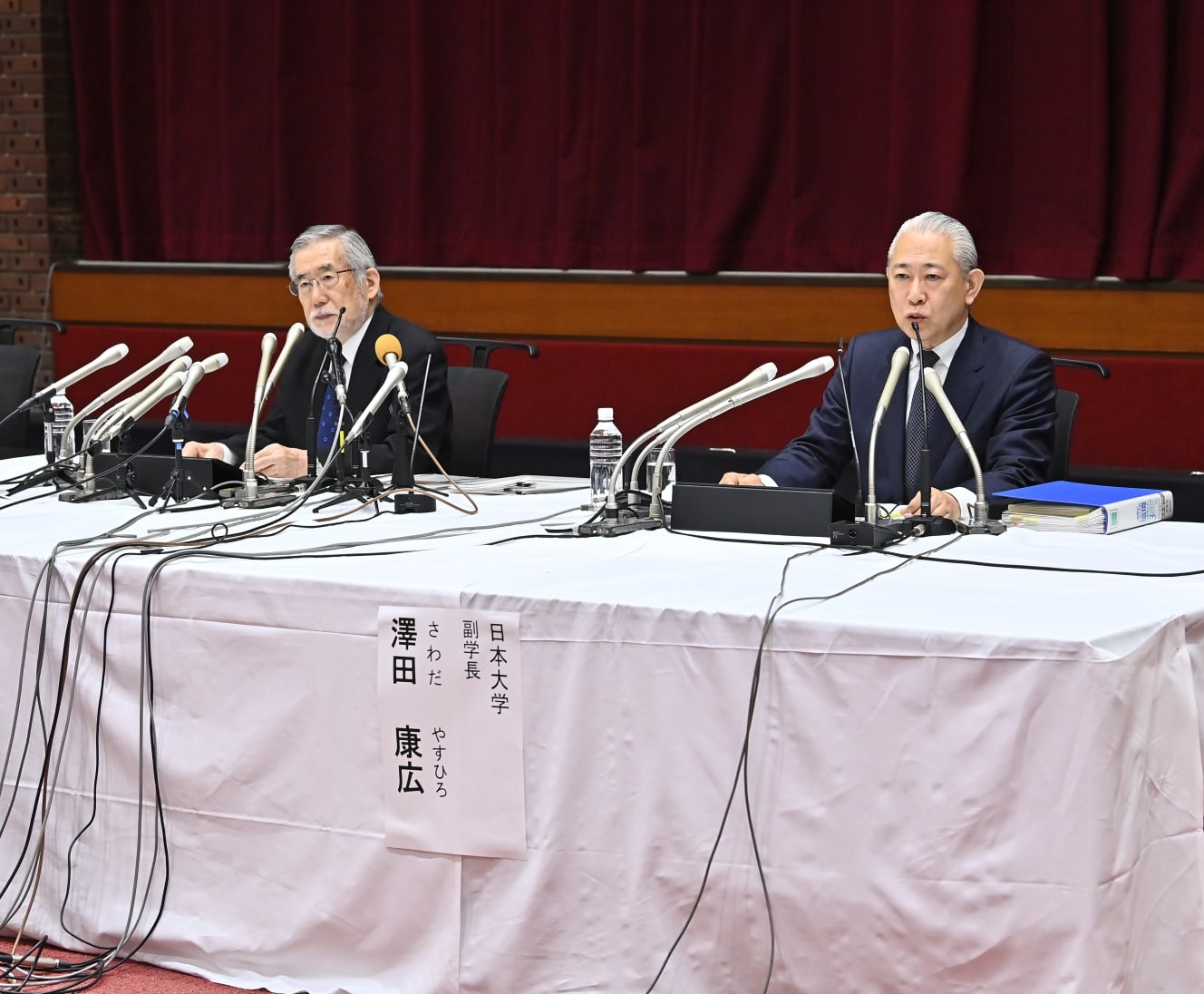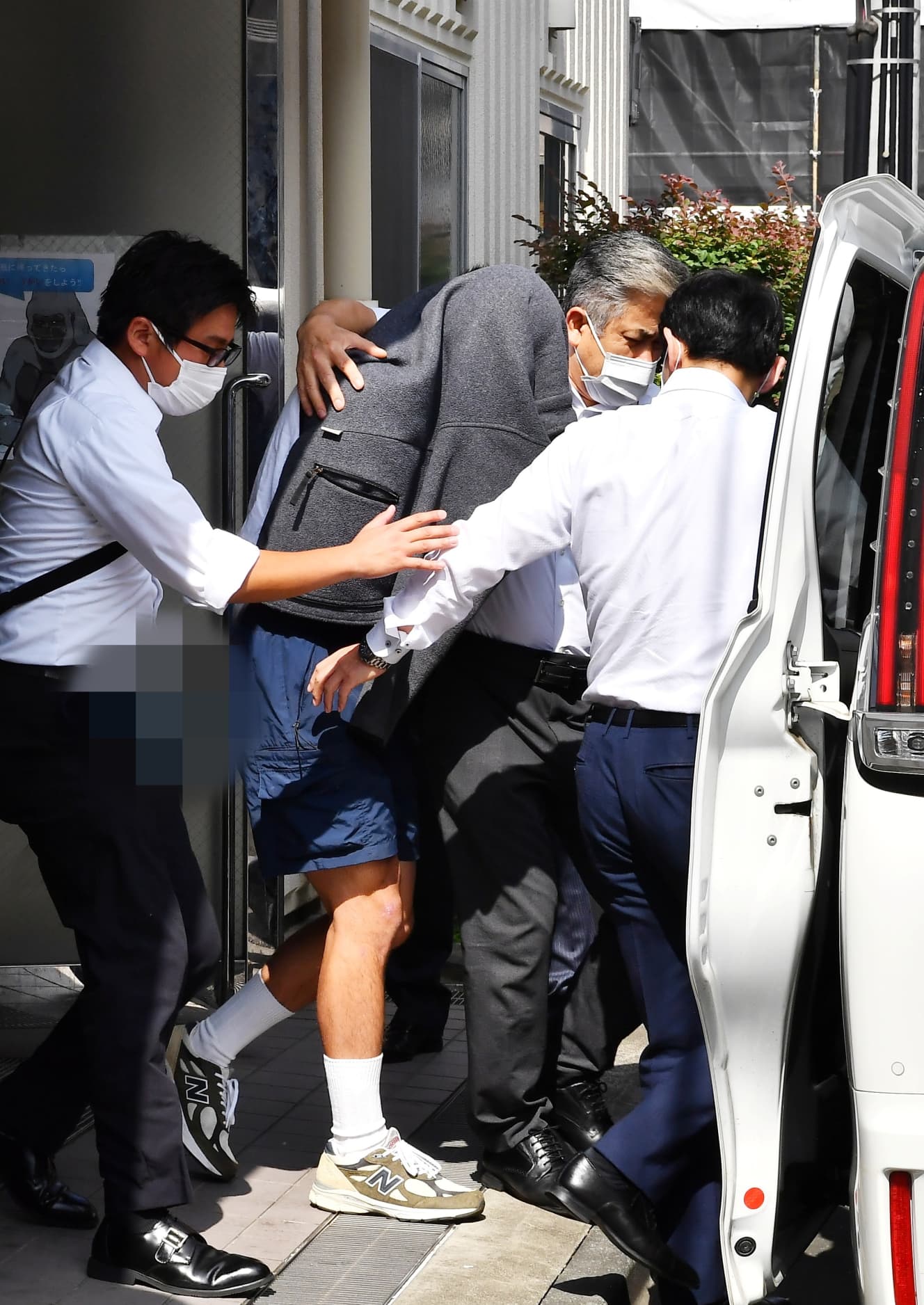Two things the university did not say at the two-hour-plus press conference on the University of Tokyo football team’s drug problem.

The press conference began with an apology from Chancellor Mariko Hayashi (69).
The arrest of the student is extremely regrettable, and as Chancellor, I take it very seriously. We have caused a great deal of inconvenience and concern to students, students, alumni, parents, and others concerned. I also sincerely and deeply apologize for the time it took to explain the situation.”
On August 8, Nihon University held a press conference regarding the illegal drug incident at the Nihon University American Football Club, attended by Chancellor Hayashi, President Takeo Sakai, and Vice President in charge of athletic sports Yasuhiro Sawada.
The incident occurred on August 5, when a member of the football team (21) was arrested on suspicion of violating the Stimulants Control Law and the Cannabis Control Law. On July 6, the university, on information provided by the police, searched the football team’s dormitory and found dried plant fragments and pills. The university reported this to the police on August 19, and the dormitory was raided on August 3. Since there was a 12-day gap between the discovery of the drugs and the police report, some suspected a cover-up on the part of the university, and the university’s explanation at the press conference was the focus of attention.
At the press conference, President Sakai mainly explained the background of the incident and the university’s response. The university then reported the matter to the police. At that point, the university did not report the incident to the police, but instead inspected the belongings of the other students and conducted a hearing, and reported the incident to the police on August 18.
President Sakai said, “At the time we found the suspicious items, we had no proof that they were illegal drugs, so we decided to consult with the police after proceeding with the hearing investigation. The university learned that the suspicious items were illegal drugs on August 3.
When asked if this “blank 12 days” was a cover-up, Chancellor Hayashi responded, “Certainly we were aware of the fact that there was a cover-up during these 12 days, but we were not aware of the fact until August 3.
When I asked Dr. Sawada about it, I was convinced that he wanted the students to turn themselves in, so I don’t see it as a cover-up at all.
President Sakai also admitted that it was true that there had been reports in the media last year that a member of the football team had been using marijuana.
The leadership conducted interviews with 121 members of the club, but at that time we could not confirm the fact that they had used marijuana. Later, in late November, one student on the football team reported to the leadership that he had smoked what he believed to be marijuana around July. The football team consulted with police officials regarding this report, but they responded that it was difficult to prove the fact because there was no physical evidence based on the student’s report alone, and because four months had passed and it was impossible to confirm whether or not the substance he allegedly smoked was marijuana.
The police officials were told to give adequate guidance to this student, so the football department decided to give him a stern warning. Later, on December 1, we received another call from the police that they had received information. However, since the police were unsure of the veracity of the information, they offered to let us conduct a course on drugs, and we held a course for the students on December 10. In fact, there are two things that the university “did not say.
During the question-and-answer session, when asked if the police decided to hold the seminar in December because some students said they smoked marijuana in November, Vice President Sawada replied, “No.” However, he was at a loss to explain the reason. In fact, it was revealed after the press conference that the “police official” he consulted in November was simply an alumnus of Nihon University who was not in charge of narcotics control or anything else. So, it is true that he “consulted with police officials,” but he did not report the matter to them or anything. So there is no way that the December workshop could have been held in the same way.
Furthermore, there was a point that the university did not reveal about the student who self-reported having smoked marijuana.
When asked if this was the same student who was arrested on December 5, Vice President Sawada avoided answering the question. This, too, was revealed after the press conference: the student had already graduated and was a different person from the student who was arrested. Perhaps he did not want to reveal this out of concern for the graduates, but it could also be taken to mean that he did not want to be seen as “having more than one member of the club involved in marijuana use. The press conference, which lasted for more than two hours, left the audience with a rather hazy impression.
Was the illegal drug case really about the one student who was caught? The suspicion has yet to be dispelled.


PHOTO: Shinji Hasuo